
Find Help
More Items From Ergsy search
-
Is aspirin effective in preventing other types of cancer?
Relevance: 100%
-
Has the FDA approved aspirin for cancer prevention?
Relevance: 100%
-
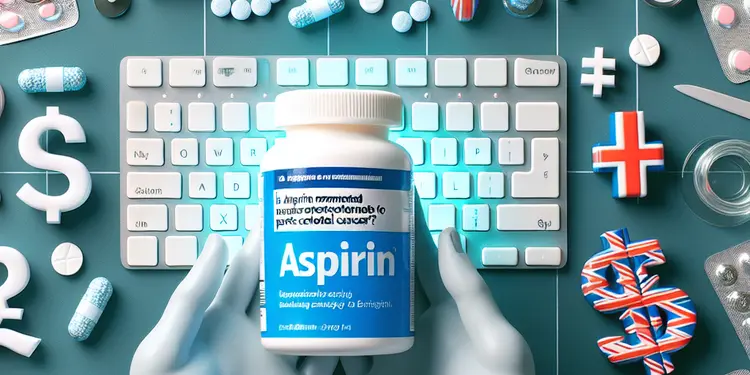
Is aspirin recommended for everyone to prevent colorectal cancer?
Relevance: 100%
-

What should I do if I'm considering aspirin for cancer prevention?
Relevance: 99%
-

What dosage of aspirin is considered effective for cancer prevention?
Relevance: 96%
-

What do health organizations say about aspirin and cancer prevention?
Relevance: 94%
-
How long do studies suggest taking aspirin for cancer prevention?
Relevance: 93%
-
Is aspirin more effective for certain age groups in preventing colorectal cancer?
Relevance: 90%
-

Can aspirin stop colorectal cancer?
Relevance: 87%
-

Has aspirin been proven to cure colorectal cancer?
Relevance: 82%
-
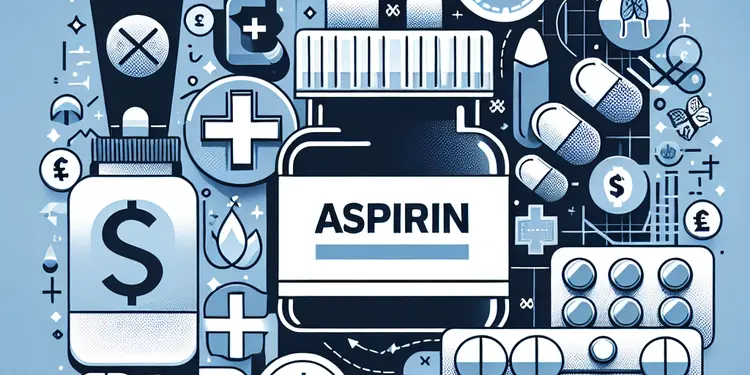
How does aspirin work to reduce cancer risk?
Relevance: 82%
-

Should people with a family history of colorectal cancer take aspirin?
Relevance: 79%
-

Can aspirin prevent colorectal cancer?
Relevance: 77%
-

What is Aspirin?
Relevance: 62%
-
Are there ongoing studies about aspirin and colorectal cancer?
Relevance: 59%
-
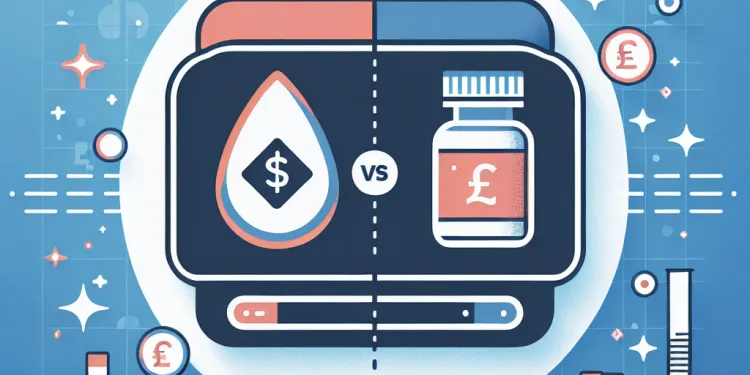
Are Aspirin and Ibuprofen the same?
Relevance: 58%
-

Is Paracetamol the same as Aspirin?
Relevance: 58%
-

Can bowel cancer be prevented?
Relevance: 58%
-
Can aspirin interact with other medications?
Relevance: 56%
-

Can aspirin help in reducing the risk of strokes?
Relevance: 56%
-
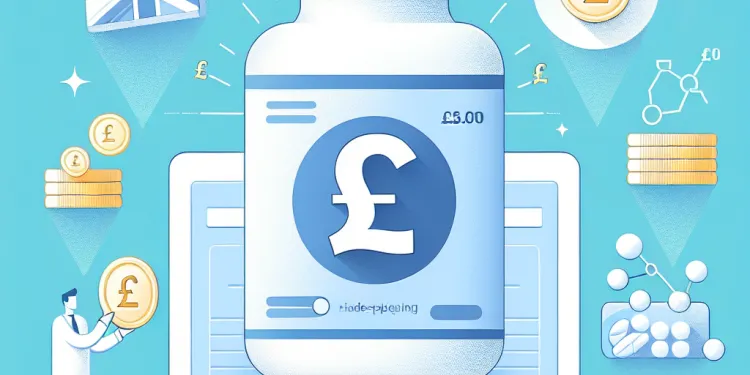
What are the side effects of Aspirin?
Relevance: 55%
-
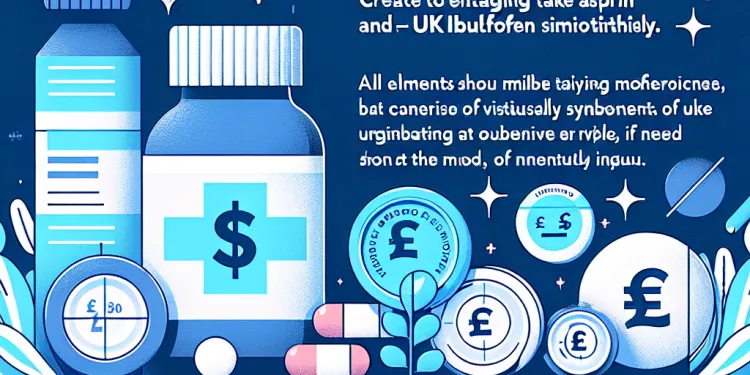
Can I take Aspirin and Ibuprofen together?
Relevance: 52%
-
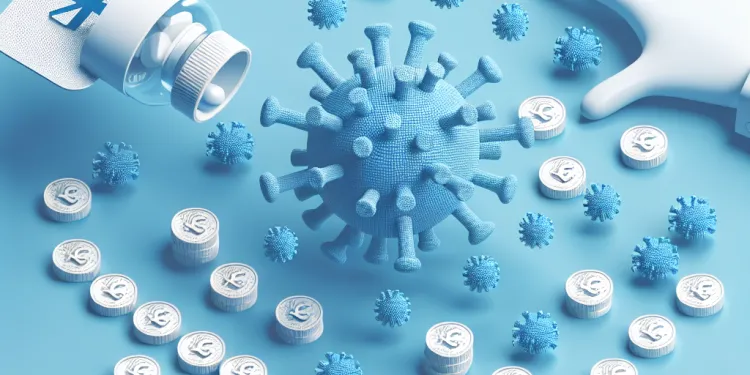
Is it safe to use aspirin to treat chickenpox symptoms?
Relevance: 51%
-

What is the difference between Aspirin, Paracetamol, and Ibuprofen?
Relevance: 50%
-
Should individuals with certain medical conditions avoid aspirin?
Relevance: 50%
-

Which one is better for headaches: Aspirin or Paracetamol?
Relevance: 50%
-

What is the difference between aspirin, paracetamol, and ibuprofen?
Relevance: 50%
-

Can lifestyle changes help prevent testicular cancer?
Relevance: 48%
-
Can lifestyle changes also help prevent colorectal cancer?
Relevance: 47%
-

What is Aspirin?
Relevance: 45%
-

Do over-the-counter medications help in preventing heart attacks and strokes?
Relevance: 45%
-
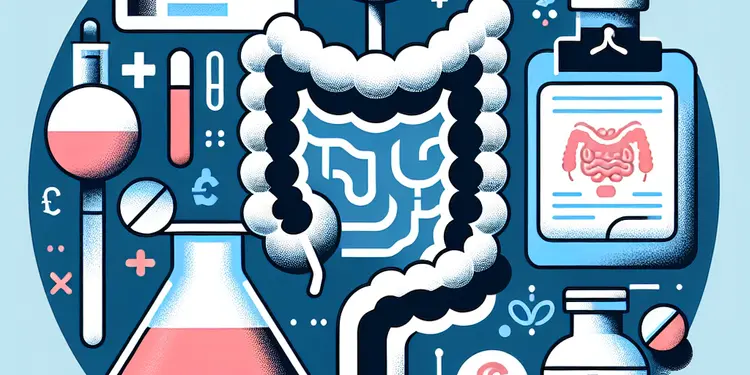
Do all studies agree on aspirin's effectiveness in preventing colorectal cancer?
Relevance: 43%
-

Endometrial Cancer
Relevance: 39%
-

Vaginal Cancer
Relevance: 38%
-
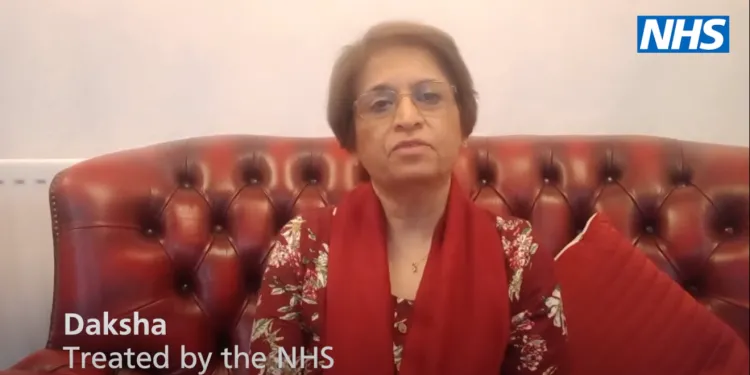
What is Cancer?
Relevance: 38%
-

Endometrial Cancer
Relevance: 38%
-

Are there risks associated with taking aspirin regularly?
Relevance: 38%
-

What is testicular cancer?
Relevance: 38%
-

Endometrial Cancer
Relevance: 38%
-
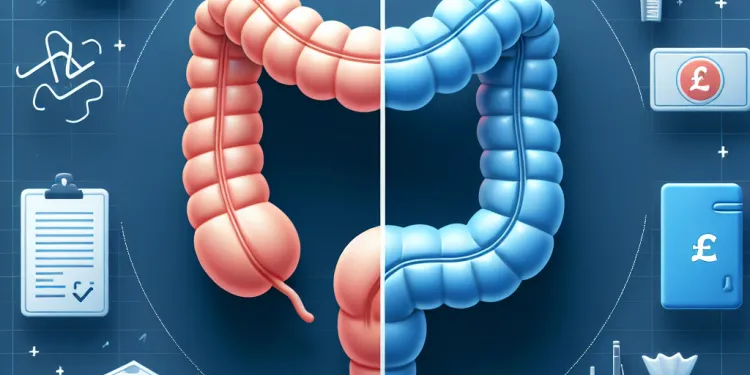
What is the difference between colon cancer and rectal cancer?
Relevance: 37%
Introduction
Aspirin is widely recognized for its benefits in pain relief and reducing inflammation. However, recent research has suggested it may play a role in cancer prevention. If you're contemplating using aspirin for this purpose in the UK, it's essential to understand the risks, benefits, and appropriate steps to take.
Consult a Healthcare Professional
Before starting any medication for cancer prevention, it is crucial to consult with a healthcare professional. They can provide personalized advice based on your medical history and personal risk factors. Aspirin is not suitable for everyone, and a doctor can help determine if it's appropriate for you.
Understand the Risks
Aspirin can increase the risk of bleeding, particularly in the gastrointestinal tract and brain. It's not recommended for individuals with a history of peptic ulcers or bleeding disorders without medical supervision. Understanding these risks is vital before considering aspirin for cancer prevention.
Assess Your Cancer Risk
Your doctor will evaluate your individual cancer risk based on your family history, lifestyle, and other factors. Aspirin is often recommended for individuals with a higher risk of colorectal cancer but may not be justified for those at average risk. Personalized risk assessment helps tailor the decision-making process.
Review Current Guidelines
Stay informed about the latest guidelines from the National Institute for Health and Care Excellence (NICE) and other reputable sources. These guidelines provide evidence-based recommendations on using aspirin for cancer prevention and help inform your decision alongside professional medical advice.
Discuss the Benefits
Your healthcare provider can explain the potential benefits of aspirin for cancer prevention, especially regarding colorectal cancer. They can also talk about the evidence supporting aspirin use and how it may impact your overall cancer risk profile.
Consider Dosage and Duration
If aspirin is deemed appropriate for you, your doctor will discuss the correct dosage and how long you should take it. Usually, a low-dose aspirin regimen is suggested, but the exact dose and duration depend on individual factors and ongoing research findings.
Monitor and Reassess
If you decide to start taking aspirin, it is essential to have regular follow-ups with your healthcare provider. They will monitor for side effects and reassess the continued need for aspirin based on any new research, your changing health status, and ongoing risks and benefits.
Conclusion
Deciding whether to take aspirin for cancer prevention involves weighing the potential benefits against the risks, based on personal health factors and professional medical guidance. By consulting with a healthcare provider, evaluating your cancer risk, staying informed on current guidelines, and monitoring your health, you can make an informed decision on aspirin use for cancer prevention in the UK.
Introduction
Aspirin is a medicine that helps with pain and swelling. Some studies say it might also help prevent cancer. If you are thinking about using aspirin to prevent cancer in the UK, you need to know the good and bad sides and the right steps to take.
Talk to Your Doctor
Before taking aspirin to prevent cancer, talk to your doctor. They can give you advice based on your health. Aspirin is not for everyone, and your doctor can help you decide if it is right for you.
Know the Risks
Aspirin can cause bleeding, especially in the stomach or brain. People with a history of stomach ulcers or bleeding problems should not take aspirin without talking to a doctor. It is important to know these risks before using aspirin to prevent cancer.
Check Your Cancer Risk
Your doctor will look at your cancer risk based on your family's health, how you live, and other things. Aspirin may be recommended for people at higher risk of bowel cancer, but not for those at average risk. Knowing your risk helps in making the right decision.
Know the Rules
Stay up to date with the latest advice from the National Institute for Health and Care Excellence (NICE) and other trusted sources. These guidelines help you understand when it is recommended to use aspirin for cancer prevention, alongside advice from a doctor.
Talk About the Benefits
Your doctor can tell you how aspirin might help prevent cancer, especially bowel cancer. They can also explain the evidence that supports using aspirin and how it might affect your cancer risk.
Think About How Much and How Long
If aspirin is right for you, your doctor will tell you how much to take and for how long. Usually, a small dose is suggested, but it depends on you and new research.
Keep Checking and Ask Again
If you start taking aspirin, see your doctor regularly. They will check for side effects and decide if you should keep taking it based on new research and your health.
Conclusion
Deciding to take aspirin for cancer prevention means thinking about both the benefits and the risks. By talking to your doctor, checking your cancer risk, knowing the guidelines, and keeping an eye on your health, you can make a smart choice about using aspirin for cancer prevention in the UK.
Frequently Asked Questions
What factors should I consider before using aspirin for cancer prevention?
You should consider your personal risk factors for cancer, your overall health, potential benefits, and possible side effects of aspirin.
Is long-term aspirin use safe for cancer prevention?
Long-term aspirin use can have risks, such as gastrointestinal bleeding and ulcers. It's important to assess these risks before starting aspirin therapy.
Who should I talk to before starting aspirin for cancer prevention?
Consult with a healthcare professional, such as your doctor or an oncologist, before starting aspirin for cancer prevention.
How does aspirin potentially prevent cancer?
Aspirin may reduce inflammation and block enzymes that promote tumor growth, potentially lowering cancer risk.
What are the common side effects of taking aspirin daily?
Common side effects include gastrointestinal issues, bleeding ulcers, and increased risk of hemorrhagic stroke.
Can everyone use aspirin for cancer prevention?
Not everyone should use aspirin for cancer prevention. People with certain medical conditions or risks may be advised against it.
What is the recommended dosage of aspirin for cancer prevention?
The dosage can vary. Consult with a healthcare professional for a personalized recommendation based on your risk factors.
Which types of cancer might aspirin help prevent?
Studies suggest that aspirin may help reduce the risk of colorectal, esophageal, and stomach cancers, among others.
Is there a specific age group that benefits more from aspirin for cancer prevention?
Benefits may be more significant for individuals aged 50-70, but it's crucial to get a personalized assessment.
Can lifestyle changes also help with cancer prevention?
Yes, alongside aspirin, maintaining a healthy diet, exercising, avoiding smoking, and reducing alcohol can aid in cancer prevention.
Are there any medical conditions that prohibit aspirin use for cancer prevention?
Individuals with a history of bleeding disorders, certain stomach issues, or aspirin allergies should avoid aspirin use.
How long do I need to take aspirin to potentially see cancer-preventive effects?
Evidence suggests long-term use, over years, may be necessary to see cancer-preventive benefits.
Are there alternative medications to aspirin for cancer prevention?
Other medications, like certain NSAIDs, have been studied, but consult your healthcare provider for alternatives.
How does family medical history affect the decision to use aspirin for prevention?
A strong family history of cancer may influence the decision, as aspirin could potentially reduce higher inherited risks.
Can aspirin interact with other medications I am taking for cancer?
Yes, aspirin can interact with other medications and increase bleeding risks. Discuss all medications with your doctor.
What ongoing research is being done on aspirin and cancer prevention?
Research continues to understand the mechanisms, effectiveness, and safety of aspirin for cancer prevention.
Should aspirin be combined with other cancer prevention strategies?
Combining aspirin with other strategies, like lifestyle changes and regular screenings, may enhance prevention.
Is aspirin effective for everyone in preventing cancer?
Aspirin's effectiveness can vary based on individual risk factors and genetic predispositions.
What should I do if I experience severe side effects after taking aspirin?
Stop taking aspirin and seek medical advice immediately if you experience severe side effects like unusual bleeding.
Can aspirin reduce the risk of recurring cancer?
Some studies suggest it might lower recurrence risk for certain cancers, but evidence is not conclusive for all types.
What should I think about before using aspirin to stop cancer?
Aspirin can help stop some cancers, but there are things you need to think about first. It is important to talk to a doctor. They can help you decide if aspirin is right for you.
Here are some things to think about:
- Talk to Your Doctor: Ask your doctor if aspirin is safe for you. They know your health best.
- Side Effects: Aspirin can hurt your stomach. It can cause bleeding. Make sure you are safe.
- Your Age: Sometimes age matters. Ask your doctor if your age makes a difference.
- Your Health: If you have health problems like a stomach ulcer, aspirin might not be a good idea.
Remember, always ask a doctor before starting any new medicine.
Think about what makes your chances of getting cancer higher. Also, think about how healthy you are. You should know the good things and bad things about taking aspirin.
Is it safe to take aspirin for a long time to stop cancer?
Aspirin is a medicine that some people take to help stop cancer. But is it safe to take it for a long time?
Here are some things to think about:
- Ask a doctor before taking aspirin every day.
- Aspirin can help prevent some cancers, but it might not be safe for everyone.
- Taking aspirin for a long time can have side effects, like stomach problems.
- Always follow the doctor’s guidance and do not start taking aspirin on your own.
For more help, you can:
- Use big print books about aspirin and cancer.
- Watch videos that explain things with simple words and pictures.
- Talk to a friend or family member who can help read and understand the information.
Taking aspirin for a long time can be risky. It can hurt your stomach and cause bleeding or sores. It's important to check with a doctor before you start taking aspirin.
Here are some things you can do:
- Talk to a doctor or nurse about aspirin.
- Use simple words and ask questions if you don’t understand.
- Read about aspirin at the library or online with a helper.
Who should I talk to before taking aspirin to stop cancer?
Talk to a doctor or a cancer doctor before you start taking aspirin to help prevent cancer.
How might aspirin help stop cancer?
Aspirin can help stop swelling in the body. It can also block parts called enzymes that might help tumors grow. This can mean a lower chance of getting cancer.
Here are some ways to make reading easier:
- Read out loud to better understand the words.
- Use a ruler or finger to keep your place when reading.
- Take breaks if reading feels hard or tiring.
- Ask a friend or family member to read with you.
What happens if you take aspirin every day?
Aspirin can help some people, but it can also cause problems. Here are things that might happen if you take aspirin every day:
- Tummy Trouble: Your stomach might hurt or feel upset.
- Bleeding: You might get bruises or bleed more easily.
- Allergies: Some people cough, get itchy, or have a runny nose.
If you feel anything strange, tell an adult or a doctor. They can help you understand.
Tools that might help:
- Pictograms: Look at pictures to understand better.
- Reading Aloud: Have someone read this to you.
Some common side effects are tummy problems, bleeding inside the stomach, and a higher chance of getting a type of stroke where you bleed in your brain.
Can everyone take aspirin to stop cancer?
Not everyone should take aspirin to help stop cancer. Some people with health problems should not use it.
How much aspirin should I take to help stop cancer?
The amount you need can be different for everyone. Talk to a doctor or nurse to find out what is best for you. They can help you based on what you need.
What kinds of cancer might aspirin help stop?
Aspirin might help stop some types of cancer.
- It might help with bowel cancer.
- It might help with some kinds of stomach cancer.
If you have questions or feel worried, talk to your doctor. They can tell you if aspirin is safe for you.
Some tools can help you remember things:
- Use a calendar to mark your medicine days.
- Ask someone to help you with medicine.
Stay safe and always ask a grown-up or doctor if you're unsure.
Some studies say that aspirin might help lower the chance of getting cancer in the colon, food pipe, and stomach.
Who can use aspirin to help stop cancer?
Getting help can be really good for people who are 50 to 70 years old. It's important to talk to a doctor or expert to see what you need.
Can changing how we live help stop cancer?
Yes, changing some things can help keep you healthy and lower the chance of getting cancer. Here are some tips:
- Eat healthy food: Try to eat fruits, vegetables, and whole grains. They are good for you.
- Stay active: Move your body for at least 30 minutes each day. You can walk, run, dance, or play.
- No smoking: Smoking is bad for you. If you smoke, try to stop. There are tools that can help you quit.
- Limit alcohol: Try not to drink too much alcohol. It is better for your health.
- Protect your skin: Wear sunscreen and a hat when you go outside. This helps keep your skin safe.
It's important to talk to a doctor or a nurse if you need help. They can give you support and advice.
Yes, taking aspirin can help prevent cancer. It's also important to eat healthy food, exercise, not smoke, and drink less alcohol.
Are there any health problems that mean you should not take aspirin to stop cancer?
Some people have health problems that make it unsafe to take aspirin. If you have these problems, aspirin might not be good for you. Talk to your doctor about whether aspirin is right for you. You can also use simple tools like a checklist or picture cards to remember what to ask your doctor.
If a person has had problems with bleeding, some tummy issues, or is allergic to aspirin, they should not take aspirin.
How long should I take aspirin to help stop cancer?
People might need to use it for many years to help prevent cancer.
Can I take something else besides aspirin to help stop cancer?
There are other medicines like some called NSAIDs. These have been studied too. But, always talk to your doctor for other options.
How does family health history affect using aspirin to stay healthy?
A family health history helps doctors know which diseases run in your family. This can affect if you should take aspirin to stay healthy.
If other family members had heart problems, your doctor might suggest aspirin.
Always talk to your doctor before taking aspirin.
Helpful tip: Use pictures or charts to understand better. You can also ask someone to read with you.
If many people in your family have had cancer, it might make you think about using aspirin. Aspirin might help lower the chance of getting cancer if it runs in your family.
Does aspirin mix with my cancer medicine?
Aspirin is a type of medicine. It can mix with other medicines. This can change how your cancer medicine works.
Here are some ways to help:
- Ask your doctor or nurse before taking aspirin.
- Use a pill organizer to keep track of your medicines.
- Write down all the medicines you take and show this list to your doctor or nurse.
Yes, aspirin can mix with other medicines and might cause more bleeding. Talk to your doctor about all the medicines you take.
Finding Out How Aspirin Can Help Stop Cancer
Scientists are studying how aspirin might help stop cancer. They want to learn more about this. You can use pictures or videos to understand better. Also, ask someone to explain if you have questions.
Scientists are still studying how aspirin works, how well it helps, and if it's safe to use for stopping cancer.
Can we use aspirin with other ways to stop cancer?
Taking aspirin with other healthy choices, like changing how you live and getting regular health check-ups, can help keep you healthy.
Does aspirin help everyone to stop cancer?
Aspirin works better for some people than for others. It depends on things like your health and your genes.
What can I do if I feel really bad after taking aspirin?
If you feel very sick or have strong side effects after taking aspirin, here is what you can do:
- Tell a grown-up or someone you trust about how you feel.
- Call a doctor or nurse for help. They can tell you what to do.
- If it is an emergency, call the emergency number in your area. This could be 911 or another number.
Here are some tools that might help:
- Use a picture dictionary to understand words better.
- Ask someone to read the information out loud to you.
Remember, it is important to get help if you feel very unwell.
If you have bad side effects like strange bleeding, stop taking aspirin right away. Talk to a doctor as soon as you can.
Can aspirin help stop cancer from coming back?
Some studies say it might help stop some cancers from coming back, but scientists are not sure yet if it helps with all cancers.
Useful Links
This website offers general information and is not a substitute for professional advice.
Always seek guidance from qualified professionals.
If you have any medical concerns or need urgent help, contact a healthcare professional or emergency services immediately.
- Ergsy carfully checks the information in the videos we provide here.
- Videos shown by Youtube after a video has completed, have NOT been reviewed by ERGSY.
- To view, click the arrow in centre of video.
- Most of the videos you find here will have subtitles and/or closed captions available.
- You may need to turn these on, and choose your preferred language.
- Go to the video you'd like to watch.
- If closed captions (CC) are available, settings will be visible on the bottom right of the video player.
- To turn on Captions, click settings .
- To turn off Captions, click settings again.
More Items From Ergsy search
-
Is aspirin effective in preventing other types of cancer?
Relevance: 100%
-
Has the FDA approved aspirin for cancer prevention?
Relevance: 100%
-

Is aspirin recommended for everyone to prevent colorectal cancer?
Relevance: 100%
-

What should I do if I'm considering aspirin for cancer prevention?
Relevance: 99%
-

What dosage of aspirin is considered effective for cancer prevention?
Relevance: 96%
-

What do health organizations say about aspirin and cancer prevention?
Relevance: 94%
-
How long do studies suggest taking aspirin for cancer prevention?
Relevance: 93%
-
Is aspirin more effective for certain age groups in preventing colorectal cancer?
Relevance: 90%
-

Can aspirin stop colorectal cancer?
Relevance: 87%
-

Has aspirin been proven to cure colorectal cancer?
Relevance: 82%
-

How does aspirin work to reduce cancer risk?
Relevance: 82%
-

Should people with a family history of colorectal cancer take aspirin?
Relevance: 79%
-

Can aspirin prevent colorectal cancer?
Relevance: 77%
-

What is Aspirin?
Relevance: 62%
-
Are there ongoing studies about aspirin and colorectal cancer?
Relevance: 59%
-

Are Aspirin and Ibuprofen the same?
Relevance: 58%
-

Is Paracetamol the same as Aspirin?
Relevance: 58%
-

Can bowel cancer be prevented?
Relevance: 58%
-
Can aspirin interact with other medications?
Relevance: 56%
-

Can aspirin help in reducing the risk of strokes?
Relevance: 56%
-

What are the side effects of Aspirin?
Relevance: 55%
-

Can I take Aspirin and Ibuprofen together?
Relevance: 52%
-

Is it safe to use aspirin to treat chickenpox symptoms?
Relevance: 51%
-

What is the difference between Aspirin, Paracetamol, and Ibuprofen?
Relevance: 50%
-
Should individuals with certain medical conditions avoid aspirin?
Relevance: 50%
-

Which one is better for headaches: Aspirin or Paracetamol?
Relevance: 50%
-

What is the difference between aspirin, paracetamol, and ibuprofen?
Relevance: 50%
-

Can lifestyle changes help prevent testicular cancer?
Relevance: 48%
-
Can lifestyle changes also help prevent colorectal cancer?
Relevance: 47%
-

What is Aspirin?
Relevance: 45%
-

Do over-the-counter medications help in preventing heart attacks and strokes?
Relevance: 45%
-

Do all studies agree on aspirin's effectiveness in preventing colorectal cancer?
Relevance: 43%
-

Endometrial Cancer
Relevance: 39%
-

Vaginal Cancer
Relevance: 38%
-

What is Cancer?
Relevance: 38%
-

Endometrial Cancer
Relevance: 38%
-

Are there risks associated with taking aspirin regularly?
Relevance: 38%
-

What is testicular cancer?
Relevance: 38%
-

Endometrial Cancer
Relevance: 38%
-

What is the difference between colon cancer and rectal cancer?
Relevance: 37%


